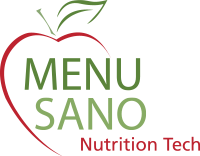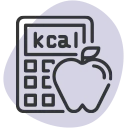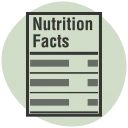Going to the grocery store means that you will soon be faced with a seemingly endless option of foods. Most people walk through the store, and quickly pick up things that they need and go. However, if you want to be more health conscious, it is important to read the nutritional label on the food products that we want to buy. That label is there to help us figure out how much calories, fat, sodium, sugar, vitamins and other minerals are there per serving. But sometimes most of us don’t know how to read the labels in order to glean the proper information from them. Eating healthy is a lifestyle that needs to be continuously maintained, so it is important that every time you pick up a food item, that you know how to read the label.
Here is a guide on how to read the labels and why these nutritional facts are important.
Calorie Count
This where the majority of us look when we pick out our food. However, sometimes the wrongful assumption that gets made is the higher the calorie count, the worse that food is for you. However, some high calorie foods are good for you, depending on what vitamins and minerals are in it. They include plenty of nutrients to help you feel fuller longer. You choose a food item based off of calorie count depending on various factors: if you’re trying to lose weight, your level of daily activity etc.
Fat
It must be noted that not all fat is bad. Fat is essential for a healthy diet and keeps our skin and hair shiny. It is the unhealthy, saturated facts that you want to avoid (i.e. trans fats). The unhealthy fats can raise levels of cholesterol in our system.
Some food labels might boast having 0 trans fats, but that may not necessarily be the case. Check the ingredients below the nutrition facts. If it includes hydrogenated oil or shortening, the food item likely contains trans fats.
Sodium
It has been proven that consuming too much sodium can cause a rise in blood pressure, making you more vulnerable to heart related diseases. Foods that have high levels of sodium have usually gone through heavy processing, making them not fresh. It is recommended to limit your sodium intake to 2,300mg/day, so if a food product is high on sodium, it is advised to skip it.
Fiber
Fiber is good for your body’s digestive system because consuming a good amount will help your digestive tract function normally. Fiber is fortunately found in a variety of foods such as fruits, vegetables and grains. It is good to pick up items that have more than 3g of fiber per serving on the nutrition label.
Sugar
Like fats, not all sugars are bad – the natural sugars such as fructose in milk, lactose in milk are great, it is just the added sugar that you need to be cautious of, such as brown rice syrup and high fructose corn syrup. To find out what type of sugars are in your food item, read the list of ingredients to find out.
Minerals and Vitamins
Check the Daily Value (DV) of the vitamins and minerals in the food item. It is best to find food that contain 10 to 19 percent of the daily value of vitamins and minerals. If they don’t offer much nutritional value, it could be just unnecessary added calories to your diet.
Next time you go the grocery store, keep these facts in mind when you pick up your food items to make for a more health conscious decision and a better dietary lifestyle today.



















